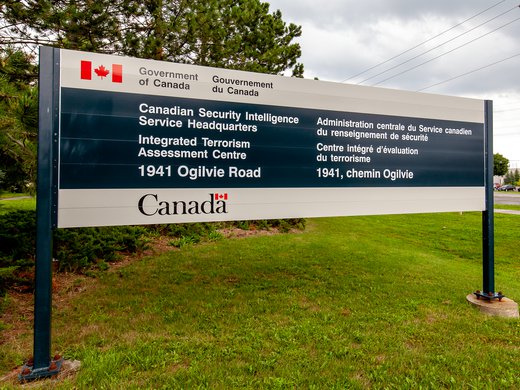The twentieth anniversary of the September 11, 2001, terrorist attacks in the United States creates an important moment for reflection on the nature of threats facing Canada in an increasingly uncertain and tumultuous world.
The subsequent war in Afghanistan had, according to US President Joe Biden, three objectives: to “get” the terrorists who perpetrated the attack, to deliver “justice” to Osama bin Laden and to keep Afghanistan from becoming a base from which future attacks could be launched. The close affiliation of the Taliban government, the Haqqani network and al-Qaeda does not bode well for the latter objective.
However, even though the threat of terrorism remains a pressing concern, the threats now facing Canada have grown more complex in the intervening 20 years.
When considering national security policy in Canada, we have to think about the velocity of change to the threat environment, the complexity of issues and the significance of technology. In the face of these considerations, we need new strategic thinking and must overcome a tendency to do siloed assessments and policy frameworks — those days are over.
Foreign policy, domestic innovation, national prosperity, intellectual property (IP), data governance, cybersecurity and trade are now all inextricably linked. Adversarial states now seek advantage across these areas, treating them as strategically connected. We need to do the same.
In short, the world around us has reoriented, and we need to reorient our thinking. New threats have emerged since Canada’s previous national security policy was issued in 2004, and new response capabilities are at hand.
Given this emergent reality, it is now clear that a new strategic framework is needed to identify the emerging and non-traditional threats to national security, and the interrelationships between them, as well as the ways in which Canada can influence global policy and rulemaking to better protect future prosperity and enhance domestic security.
In order to do this, three things need to happen.
First, we require a clear-eyed assessment of Canada’s core national interests, and to the extent possible, this should be done across political parties. The cold reality is that the world does not care which party wins the most seats in the House of Commons on September 20. It is equally true that enhancing national security and increasing Canadian prosperity will require the best we have as a country. This will need to be about long-term policy, not short-term politics. This assessment should be driven by articulating a set of strategic objectives about how Canada wants to interact with the world, and how we want to live at home.
Second, with an assessment of national interests and strategic objectives set, we will need to build a framework that adequately supports the institutions driving the pursuit of those objectives. Pursuing an ambitious vision of Canada in the world — without adequate resources — is equal parts hopeless and pointless. But this will require building national prosperity.
Third, building prosperity will require a more nuanced approach to achieving success in the modern economy, which is now driven by IP and data. Canada is home to some of the brightest and most innovative businesses in the world. However, our current approach to innovation has allowed foreign companies to cannibalize our firms, pulling the benefits of IP research and development out of the country. Even worse, some actors have used commercial espionage to steal Canadian prosperity.
The unprecedented generation of IP and data assets demands both an urgent and sophisticated policy approach. We need to be able to leverage every innovative advantage to compete globally, while also ensuring that we keep the value of homegrown ideas — especially those funded through public money and government grants — for the benefit of all Canadian society.
To guide Canada’s path forward, new models of flexible problem solving and policy generation are needed. If we are to advance the national interest in an extremely competitive global environment, fraught with uncertainty and unfriendly actors, we need to enable collective action that shatters traditional walls to cultivate impactful collaboration. Intricate policy challenges cannot be addressed by individual government actors or stakeholder groups alone.
While a truly collaborative approach to policy making can be rare, drawing on the expertise and perspectives of the best and brightest representing government, the commercial sector, academia, and civil society can serve as a mechanism to draw on key lessons of good governance, adopt innovative techniques to facilitate coordination, and enable information sharing across increasingly diverse actors that stand to propel Canada’s twenty-first-century data-driven and knowledge-based economy.
Many discussions of the national interest can be vacuous. However, there is one that all Canadians can agree on: we want to live in a secure and prosperous nation. But these are two sides of the same coin. You cannot have security without prosperity, because you cannot pay for it, and you cannot have prosperity without security, because insecurity can disrupt all aspects of Canadian society, including the economy.
In the same way that the attacks of September 11, 2001, caused a profound shift within the security and intelligence community, the 20th anniversary should give us pause. We need to reimagine Canada’s role in the world and put everything we have into building a nation that is both prosperous and secure.



